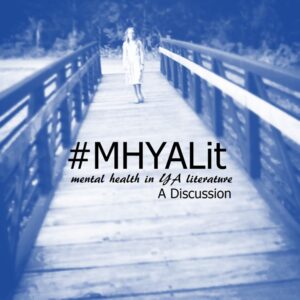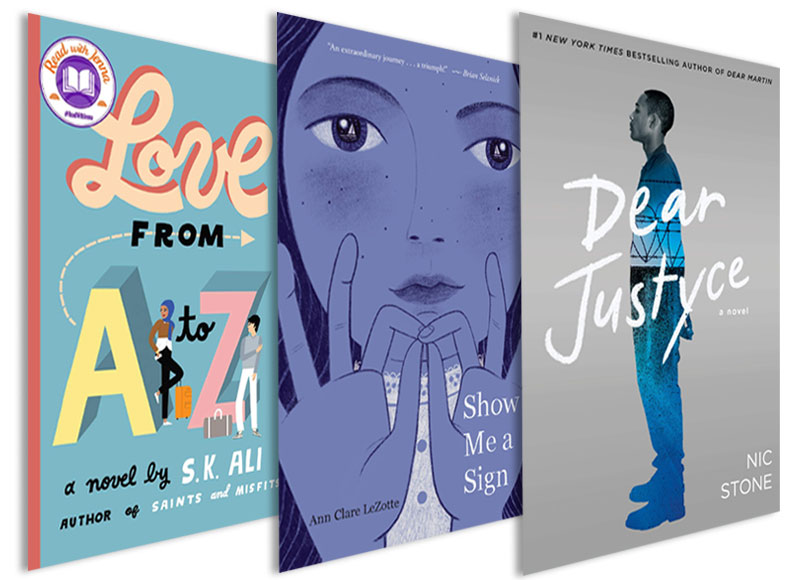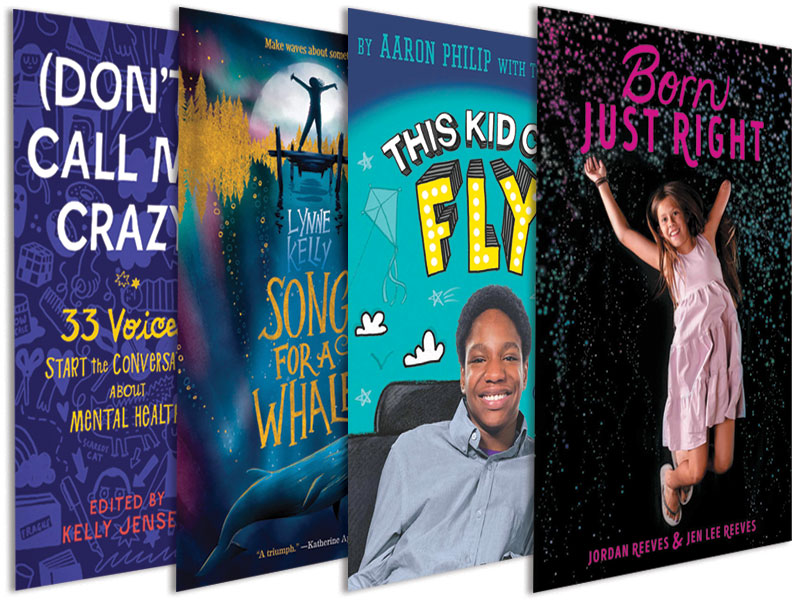#MHYALit: Why You Shouldn’t Ban Your Kid from the Internet, a guest post by Laura Tims
 When I was growing up, losing internet privileges was a common punishment in my family. It’s a common punishment in most families. Bad grades? No screen time for a week. Missed curfew? No internet.
When I was growing up, losing internet privileges was a common punishment in my family. It’s a common punishment in most families. Bad grades? No screen time for a week. Missed curfew? No internet.
It seems like a reasonable punishment. However, it may have unintended consequences.
Nowadays, twenty percent of adolescents have a diagnosed mental illness. That’s a huge number. But school counselors are typically understaffed and not equipped for longterm mental health care. When you’re under eighteen and you need mental health care, it pretty much has to go through your parents.
ADVERTISEMENT
ADVERTISEMENT
Imagine telling your parents that they need to pay for your therapy and medications, which even with insurance can be expensive, and drive you to appointments, which can be far away. This is assuming your family has insurance, a car, and the means to afford treatment. This is assuming that the guilt and self-blame, common with many mental illnesses, and the stigma of needing mental health care aren’t enough to keep you silent. This is assuming that you have a good enough relationship with your parents to come to them with this immense vulnerability. And even the most well-meaning parents don’t always understand what mental illness is – the fear that they’ll react with unintentional ignorance, dismissiveness, or self-blame themselves is enough to stop a lot of teenagers from speaking up.
It’s unsurprising that a lot of teens have little access to adequate mental health care. So they reach out wherever else they can – you see people trying to manage their own mental health and that of their friends’ at the same time, which, obviously, can be overwhelming. Oftentimes, they turn to the internet.
On December 28th, 2014, trans teen Leelah Alcorn died by suicide after posting a final note to her Tumblr. Among other things, she had been isolated by her parents and restricted from the internet for some time. Her death shone a light on what had already been going on – that plenty of teens share suicidal ideation on their social media accounts when they haven’t told anyone in real life.
Blocking access to the internet can cut someone off from the only venue where they might feel comfortable reaching out for help before they do something drastic. It creates an opportunity for someone to see the message and contact the authorities.
There’s also the fact that a lot of teenagers turn to the internet as their primary source of mental health resources. While it’s not a replacement for professional mental health care, there are tons and tons of blogs, videos, and forums online for DIY mental health care, which is sometimes all someone has access to.
Acting out is often a symptom of mental illness. It can be the worst time to isolate a teenager from their best source of resources, or from their support group of friends. Even if you don’t think your teenager has a mental illness, it’s possible that they just don’t feel comfortable bringing it to you. There’s a stereotype of kids getting hysterical for no reason when losing access to their phones or laptops (often going along with the ‘millenials are too attached to their devices’ refrain) but if your teen reacts with seemingly unreasonable desperation or intensity to having their internet privileges taken away, it’s best to talk to them and see what it is they need instead of chalking it up to dramatics. You may be removing their only way to cope with a mental illness.
For a thorough list of online resources for mental illness and other issues, check out the resources page on my mental health blog.
Meet Laura Tims
ADVERTISEMENT
ADVERTISEMENT
 Laura Tims is a young adult author, a fan of humans, and a reasonably cute organism. Her debut novel, PLEASE DON’T TELL, will be out 5/24/2016, from Harperteen. Her second, THE BEST THING ABOUT PAIN, is coming 2017. She’s a Hufflepuff, an ENFP, a Cancer, and she likes pretty much everyone. Find her on Twitter, Facebook, Goodreads, and her mental health blog.
Laura Tims is a young adult author, a fan of humans, and a reasonably cute organism. Her debut novel, PLEASE DON’T TELL, will be out 5/24/2016, from Harperteen. Her second, THE BEST THING ABOUT PAIN, is coming 2017. She’s a Hufflepuff, an ENFP, a Cancer, and she likes pretty much everyone. Find her on Twitter, Facebook, Goodreads, and her mental health blog.
About PLEASE DON’T TELL
Debut author Laura Tims writes an intense and utterly gripping contemporary YA tale perfect for fans of Pretty Little Liars. Joy has done everything to protect her twin sister…including murder.
Joy killed Adam Gordon for what he did to her sister, Grace. At least, that’s what she thinks happened. Now Adam can’t hurt anyone ever again, and her sister can be free from the boy who harmed her.
But someone else knows what Joy did, and they’re going to out her as a cold-blooded killer if she doesn’t expose the scandalous secrets bubbling just below the surface of her mundane town. As the demands escalate, and she finds herself falling for Adam’s half brother, Joy must figure out the blackmailer’s identity before everything spirals out of control.
ISBN-13: 9780062317322
Publisher: HarperCollins Publishers
Publication date: 05/24/2016
Filed under: #MHYALit
About Amanda MacGregor
Amanda MacGregor works in an elementary library, loves dogs, and can be found on Twitter @CiteSomething.
ADVERTISEMENT
ADVERTISEMENT
SLJ Blog Network
One Star Review, Guess Who? (#211)
Cover Reveal and Q&A: Dusti Bowling’s Latest – The Beat I Drum (Apr 2025)
Kevin McCloskey on ‘Lefty’ | Review and Drawn Response
The Seven Bills That Will Safeguard the Future of School Librarianship
Gayle Forman Visits The Yarn!
ADVERTISEMENT








I’m not sure this is the best argument on behalf of more internet for teens. For this particular teen, it sounds like the internet was an outlet, but for many others, it’s a maze of mirrors full of anxiety and social pressure. There are many other cases of kids who have taken their own lives as a direct result of interactions they’ve had online. I think the more compelling case to be made would be that you should make a strong effort to provide support for struggling adolescents in real life, and to accept LGBT teens for who they are, rather than forcing them to seek solace online.